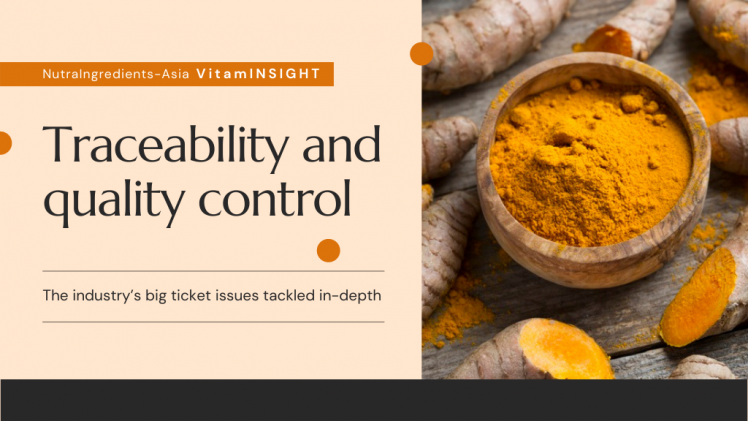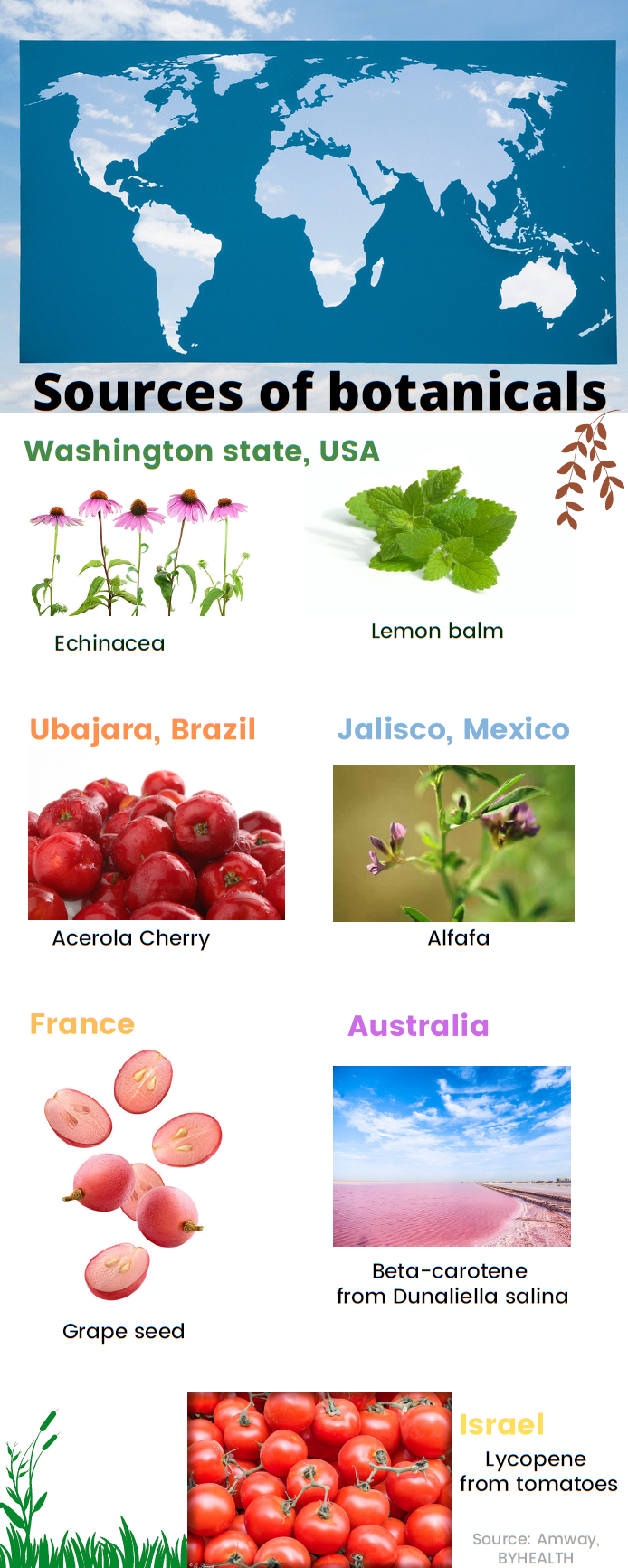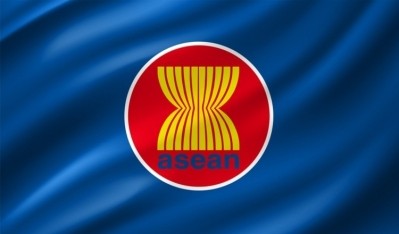VitamINSIGHTS: Traceability and quality control – Exclusive in-depth analysis
Not just the data: Amway, BYHEALTH, Danone on bringing product traceability to life for consumers

Popular brands are often the ones to fall prey to the problem of counterfeit goods, as they are often the targets of illegal syndicates that hope to make a quick buck by selling imitated goods.
In the past few months, Amway India has been putting various advertisements on social media platforms, newspapers and TV commercials to warn consumers not to buy counterfeit goods sold on e-commerce portals.
Governments are also playing a part through overt operations. In 2018, Chinese authorities seized over AUD$6.3m worth of counterfeit supplements that were sold as genuine Blackmores and Swisse.
E-commerce platforms such as China’s JD.com has also made public its “zero-tolerance” to counterfeits by claiming that the products are sourced directly from brands and reputable merchants.
Against the backdrop, product traceability has become a buzzword, with both corporations and governments embracing this concept.
For example, the South Korean government has made it mandatory for companies making infant formula and Food for Special Medical Purposes (FSMPs) with a turnover of KRW$100m (US$89k) in 2018 to adhere to traceability requirements since December last year, while a similar requirement was put in place for functional food manufacturers since June 2020.
In China, the National Administration of Traditional Chinese Medicine announced in 2020 that it aimed to establish a traceability system for TCM botanicals, tablets, TCM-based products, where the product manufacturing and distribution are tracked.
The country’s Ministry of Industry and Information Technology (MIIT) and messaging app WeChat also developed a mini program known as Ying Pei Ru Fen Zhui Su(婴配乳粉追溯)for infant formula traceability in July 2019.
Part I: Bringing traceability to life for consumers
Four years ago, Amway launched its Nutrilite Traceability program and the initiative has since expanded to include its skincare and beauty line.
The goal is not just to feed consumers with information on the origins, manufacturing process of the products, but also to “bring traceability to life”, Lindsay Pott, manager of traceability to transparency, Amway told NutraIngredients-Asia.
This is also why the company focuses on new technologies that “bring” consumers to the actual site where the ingredient is sourced, or a product is made. This is done mainly through the Nutrilite Traceability webpage and the product QR code.
“We have launched things like web based augmented reality. We call it 3D web which we have been able to dig in the traceability story behind some of our key products.
“We have also launched virtual reality, we have livestreams from some of our farms, so you can see what’s happening there 24 hours a day, seven days a week.
“And we have a variety of different videos to bring to life not only the products and the product creation process, but the people behind the products and all the great people that are involved in creating Nutrilite products,” Pott said.
Watch Pott explain the company’s traceability program in the following video.
Within Asia-Pacific, the program has received strong response in China since it was launched.
“When Amway China launched the program, we saw millions, millions and millions coming to the website. We tried to dig into why this was the case and why this was so important to them.
“What we found is that the interaction with the website will vary a little depending on where you are at in the world and what that market has done to make the program ‘physical’ to its customers.
“For China, having visibility in the product is hugely important. There are all sorts of food safety issues that happen to consumers in China. There are counterfeit issues and a variety of different fraud within the food and the vitamin and supplements industries as well.
“So, there is a strong inner need for them to see visibility in the products. They want to be able to engage with a brand that can show them not only where that product is coming from and how it's made, but all the different safety tests that are being done to that product as well,” she explained.
However, it is not just food safety concerns that drive consumers to traceable products.
Pott described consumers as having “a spectrum of needs” when it comes to issues such as traceability and transparency.
On one hand, due to the lack of visibility and food safety scandals, consumers are demanding transparency and traceability to reassure themselves of their purchase decisions.
Consumers on the other end of the spectrum are more concerned with gaining knowledge and not necessarily because they are worried of food safety.
“So, for me as a consumer, I have a right to know. I want to know where the product that I am buying is coming from. I want to know how it's made. I want to feel connected to the people that created the product and to where the product is coming from.
“I want proof of sustainable practices, how is the company being a good steward of the earth that it is working in and the community that is involved with, in the communities of the farmers that it's working with.
“There's a wide spectrum of needs that our customers have. At the end of the day, they all lead to this internal desire for transparency. And for a consumer to be able to trust, they need to be able to see this transparency coming from a company,” she said.
For China health foods giant BYHEALTH, the company is literally inviting consumers to see themselves the production process of the products.
In Zhuhai, the neighbouring city of Macau, the company runs the BYHEALTH Transparency Factory which is opened to public and serves as an educational centre.
“Once entering our factory, visitors can get a close look at every key production process as well as all of the testing for raw materials and finished products,” the company said.
The public can also learn how the raw materials are stored, up till the production and inspection process on the company’s website.
In April, Jesse Gu, head of sales and marketing at BYHEALTH International also told us that the company’s newly completed factory in Melbourne was planned to be opened for public visit.
It will be the second BYHEALTH factory to do so after the one in Zhuhai.
Part II: What matters and what tools to use?
Moving a step back, how do companies decide what information is vital for consumers to know and what tools to use when gathering information?
To Amway, the first step is to put the right standards in place, before searching for the relevant tools and technologies, which Pott said was a process that was constantly evolving.
“How are we defining traceability and the industry’s definition of traceability is very narrow. For the vitamin dietary supplement space, you need to know the nearest supplier you bought from, and the customer you sold to, but that doesn't tell you much.
“I mean there's many layers sometimes to a supply chain…So first and foremost, we need to have the right standards in place, and we are constantly looking at those standards and maturing and evolving those because the world is complex, and the supply chain is complex.”
As such, the company has put in place the NutriCert – Amway’s exclusive certification program to ensure that partnering farms producing botanicals and plants used in Nutrilite products meet the quality standards for purity, safety, and efficacy as Amway-operated farms.
Amway currently operates four organic plant farms in California, Washington State, Mexico and Brazil.
In its Trout Lake Farm located in the Washington State, the company grows crops such as blueberry, Echinacea purpurea, Echinacea angustifolia, oregano, peppermint, and nettle.
Elsewhere in Mexico’s Rancho El Petacal farm, the firm grows spinach, kale, broccoli, watercress, parsley, grapefruit, orange, lemon, oregano, sage, and asparagus.
The certification process is applicable to all partnering farms across the world.
According to Pott, the program requires on-site audits, on top of desk audits.
“We have created a NutriCert certification programme, which requires on-site audits, not just desk audits, with us sharing the standards for sustainable agricultural practices, community involvement, treatment of workers and then certainly traceability standards as well,” she said.
In addition, the company has introduced a similar certification program for suppliers supplying non-botanical ingredients.
“Any of those [ingredient suppliers] that fall outside of the NutriCert program will have to abide by our Amway Supplier Qualification process. Traceability is also part of that, and we have been ritually developing it within that process.”
Second, the next step is to put in place the right tools to gather traceability-related data and enforcing the standards.
In this case, while blockchain is a common tool in the world of traceability, Pott pointed that the criteria for selecting a technology would depend on whether it was user-friendly, since the supplier base is highly diverse.
Sometimes we are a little bit ahead of where the tools are, and that's why we have had to find a mix of things and a mix of tools to be able to support our needs.
We have very strict requirements of the suppliers already. So certainly, we want to be mindful of the pressures, of how the use of a new technology might put on them. And we want to be able to find a solution that can be easily manageable for us, as well as for them something that we could train them on and help support them in.
Part of the role of my job and my team is to look at future focused innovations, and where might things be going, whether that's blockchain or other types of technology, to really look at what might be the best solution moving forward to meet the evolving needs of the supply chain.
Since technologies are constantly evolving, it is also crucial for the firm to select those that could be applicable for a long period of time, without having to switch to a different technology frequently.
Third, the firm will need to identify the right tools to present the traceability-related information to consumers.
In the case of Danone, the company has introduced a baby formula Track & Connect Service, that is said to provide information from farm-to-fork for products under the brands Aptamil, Karicare, Nutrilon, and Laboratoire Gallia.
Consumers will be able to find out more about the products via two QR codes – one that is printed on the outer packaging and another one printed behind a tamper-resistant seal, which can only be scanned after purchase.
The first code allows consumers to access a brand page containing information on where and when the formula was made and tis journey throughout the supply chain.
Scanning the code behind the tamper-resistant seal will trigger a one-time message verifying the authenticity of the product.
According to the firm, the service is powered by blockchain, serialisation, and aggregation technologies.
The service has been launched in China since 2020 for the Aptamil and Nutrilon brands.
Part III: Resolute to be truthful
While companies can claim that their products are traceable, ultimately, it takes commitment for companies to present real facts and data to back up their claims, as well as for individual governments to keep a close eye on product safety.
This is especially the case when it is not mandatory by law for companies to incorporate traceability policies, and the COVID-19 pandemic has posed a further challenge.
“We live in a very hyper connected, hyper complicated world. And it's just become more so through the pandemic. And as you know, as everyone knows, hygiene issues have become part of that challenge.
“Having true visibility into your supply chain takes a lot of commitment. It takes a lot of enforcement. And it's working with these suppliers to help them not only see the importance of having visibility into their supply chains, but then helping them mature and grow through that as well.
“So, it's kind of like peeling back an onion when you practice strict traceability. You peel a layer of that onion only to find that there's many more layers to be peeled,” said Pott.
A former director at the Food Safety and Standards Authority of India (FSSA) also pointed out the limitations of law in safeguarding food safety and traceability.
“Traceability starts from the supply chain to the finished product. As per Food Safety and Standards (FSS) Act, 2006, agricultural farming is excluded from the purview of the FSS Act, rules and regulations.
“FSSAI specified maximum residues limits (MRL) for pesticides but most of the food testing laboratories are not equipped to test all the parameters specified by the FSSAI.
“This is one of the loopholes that most of the companies take advantage. These tests are costly also. As such, consumer can't get the food tested by spending money from their own pocket,” Pradip Chakraborty, former director of FSSAI and adviser to India’s Health Foods and Dietary Supplements Association (HADSA) told us.
Chakraborty is known for banning Nestle's Maggi Noodles during his tenure as director at FSSAI as the lead content was 17.5 ppm – way above the maximum permissible limit of 2.5 ppm for noodles.
Asked what can be done to mitigate the limitations mentioned, he believes that it is more effective for the regulator to conduct market surveillance than enforcement.
“For effective implementation of the regulations, periodic testing of food products sample in well-equipped laboratory shall be done by the Regulator.
“Surveillance is better than enforcement. Regular Surveillance by the Regulator is essential to ensure safe food,” he said.





















